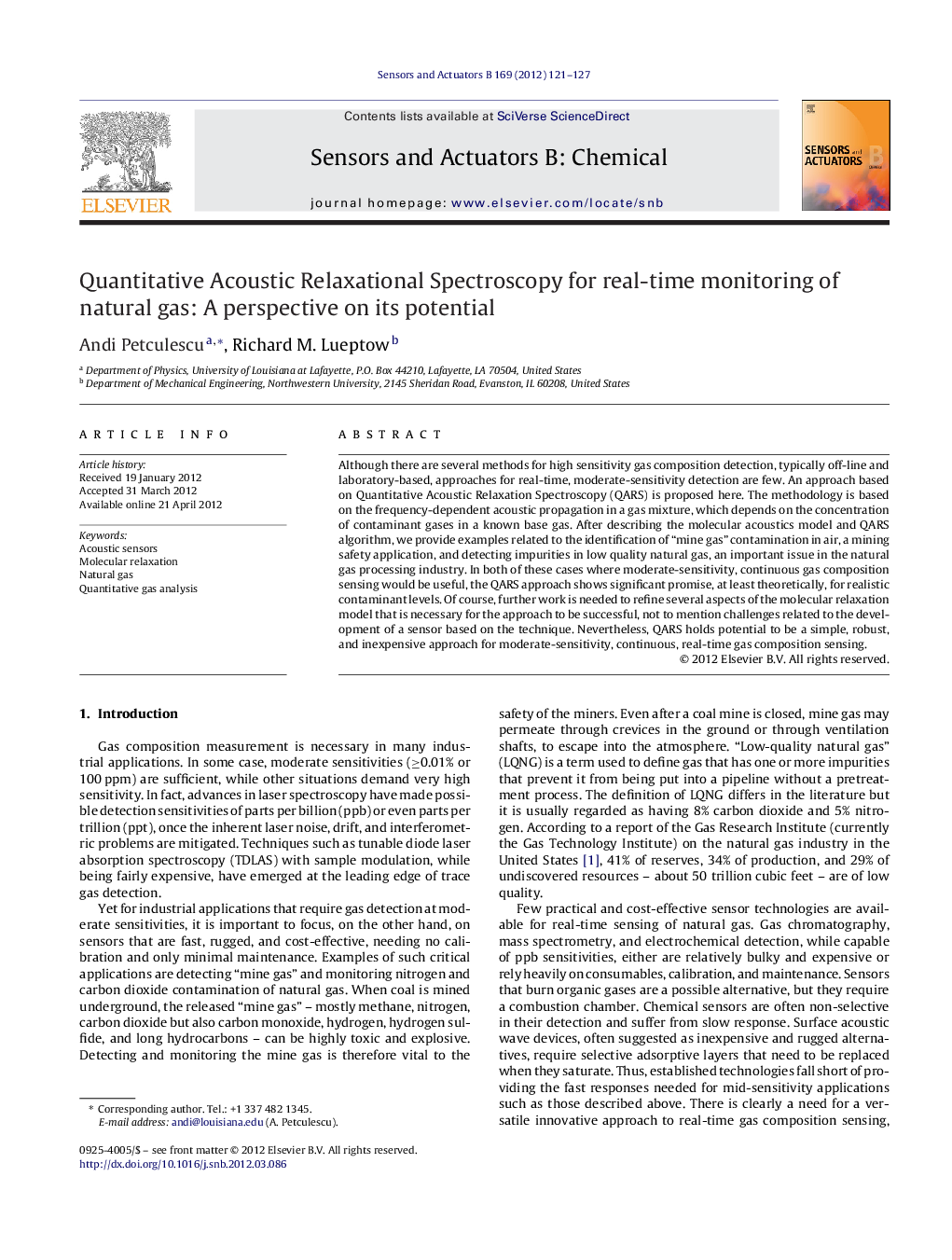| Article ID | Journal | Published Year | Pages | File Type |
|---|---|---|---|---|
| 7149881 | Sensors and Actuators B: Chemical | 2012 | 7 Pages |
Abstract
Although there are several methods for high sensitivity gas composition detection, typically off-line and laboratory-based, approaches for real-time, moderate-sensitivity detection are few. An approach based on Quantitative Acoustic Relaxation Spectroscopy (QARS) is proposed here. The methodology is based on the frequency-dependent acoustic propagation in a gas mixture, which depends on the concentration of contaminant gases in a known base gas. After describing the molecular acoustics model and QARS algorithm, we provide examples related to the identification of “mine gas” contamination in air, a mining safety application, and detecting impurities in low quality natural gas, an important issue in the natural gas processing industry. In both of these cases where moderate-sensitivity, continuous gas composition sensing would be useful, the QARS approach shows significant promise, at least theoretically, for realistic contaminant levels. Of course, further work is needed to refine several aspects of the molecular relaxation model that is necessary for the approach to be successful, not to mention challenges related to the development of a sensor based on the technique. Nevertheless, QARS holds potential to be a simple, robust, and inexpensive approach for moderate-sensitivity, continuous, real-time gas composition sensing.
Related Topics
Physical Sciences and Engineering
Chemistry
Analytical Chemistry
Authors
Andi Petculescu, Richard M. Lueptow,
